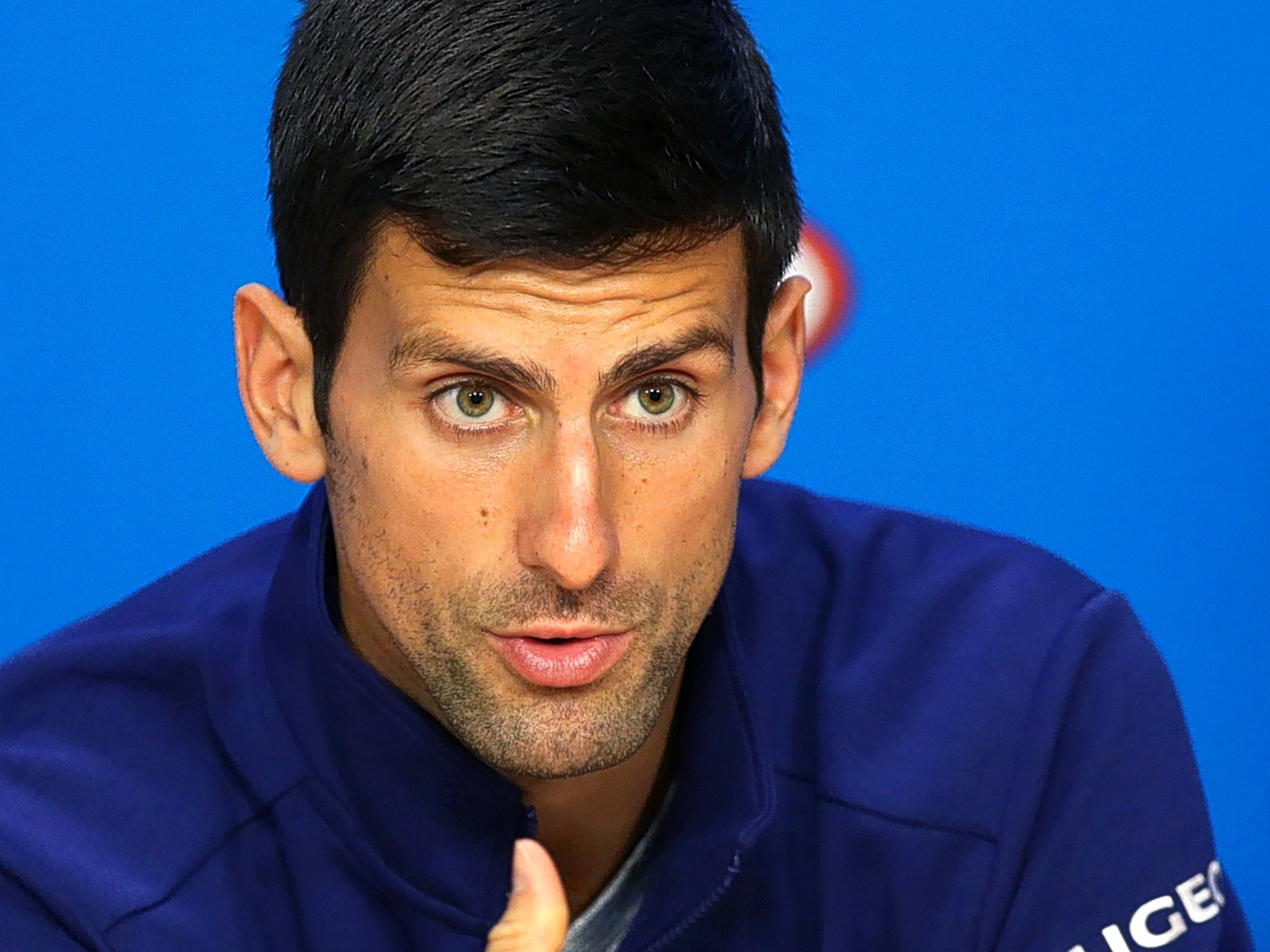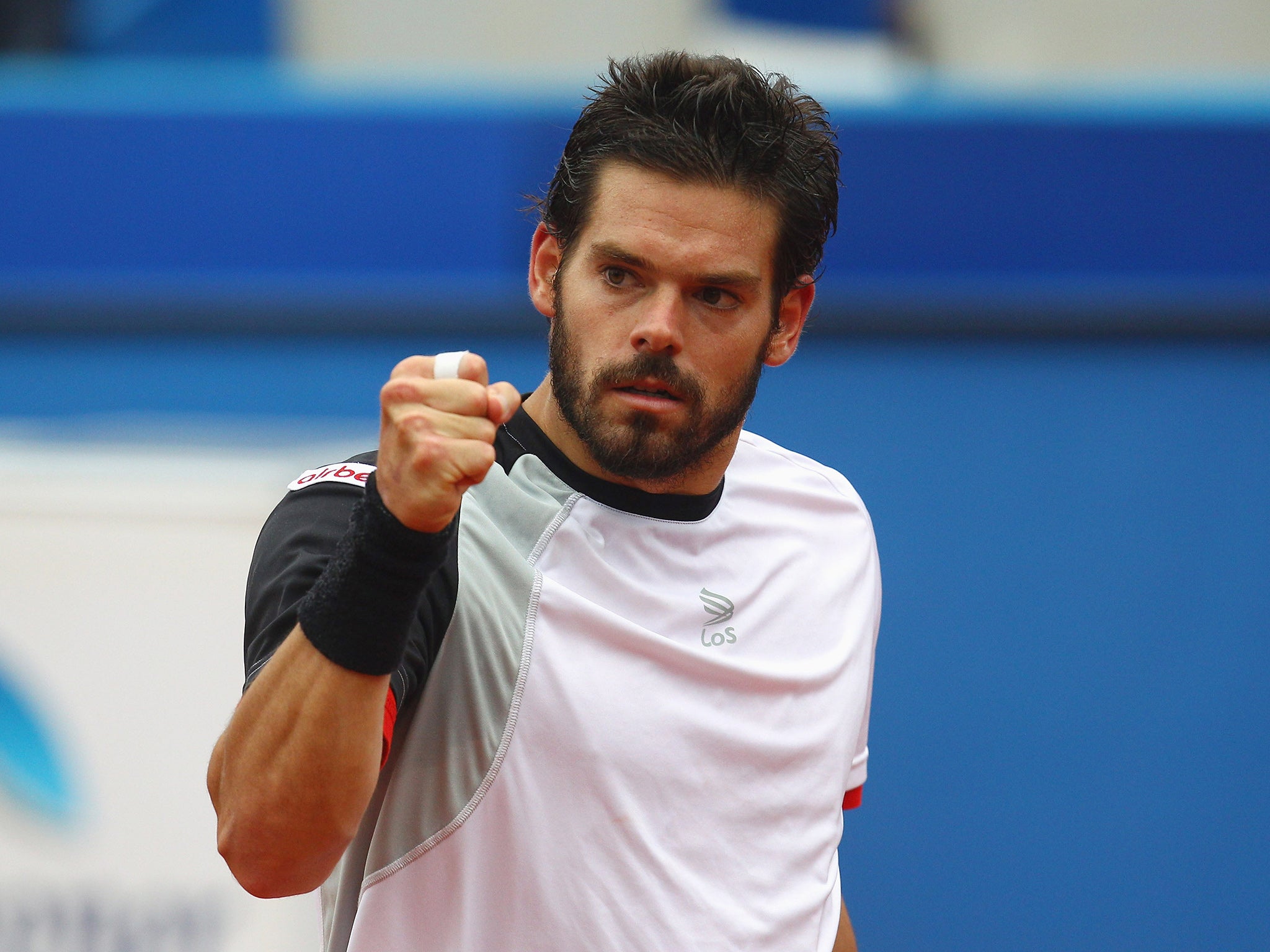Tennis match fixing: Is tennis awash with corruption or is this latest report a storm in a teacup?
Paul Newman in Melbourne wades through the allegations of match-fixing and asks if enough is being done to expose any illicit behaviour

Your support helps us to tell the story
From reproductive rights to climate change to Big Tech, The Independent is on the ground when the story is developing. Whether it's investigating the financials of Elon Musk's pro-Trump PAC or producing our latest documentary, 'The A Word', which shines a light on the American women fighting for reproductive rights, we know how important it is to parse out the facts from the messaging.
At such a critical moment in US history, we need reporters on the ground. Your donation allows us to keep sending journalists to speak to both sides of the story.
The Independent is trusted by Americans across the entire political spectrum. And unlike many other quality news outlets, we choose not to lock Americans out of our reporting and analysis with paywalls. We believe quality journalism should be available to everyone, paid for by those who can afford it.
Your support makes all the difference.What exactly are the allegations that were made yesterday?
BuzzFeed News and the BBC conducted a year-long investigation into tennis and concluded that match-fixing is widespread. They allege that a core group of 16 top players has been at the centre of the corruption.
The match-fixing is said to be orchestrated by betting syndicates in Russia and Italy which have made large profits as a result. Players are alleged to have been targeted in their hotel rooms at leading tournaments and offered $50,000 or more to throw matches, including some at the French Open and Wimbledon.
According to the investigation, an initial inquiry in 2008 identified 28 players who were suspected of involvement in match-fixing, none of whom has ever been sanctioned. The evidence is said to have been shelved subsequently because lawyers advised that a new integrity code could not be enforced retrospectively.
No new names have been revealed by the investigation. The BBC said on its website: “The BBC and BuzzFeed News have decided not to name the players because, without access to their phone, bank and computer records, it is not possible to determine whether they may have been personally taking part in match-fixing.”
How credible are the investigation’s allegations?
It is clear that the BBC and BuzzFeed have put many hours into their inquiry by interviewing players, officials, bookmakers and match-fixing experts. They have seen leaked documents from within the sport, while betting activity on more than 26,000 matches has been analysed.
However, just because a match features unusual betting patterns is not necessarily a sign of corruption. It could mean, for example, that gamblers are aware of one player’s injury problem. It can also take only a few bets to send the odds on a match in one direction. To conclude simply from unexpected betting patterns that a match has been fixed might be a dangerous assumption.
Although it is easy to understand why this investigation has not named names – it would be risking massive libel claims if it did so – it is unfortunate that it has been unable to find some more reliable witnesses willing to go on record.
The fact that the investigation quotes the Austrian player Daniel Köllerer saying there were “so many guys” who were “losing matches on purpose” hardly adds to its credibility. Köllerer, who was a hugely unpopular player on the tour, is serving a life ban for match-fixing.
Are tennis matches easy to fix?
Absolutely. Fixing matches in team sports generally requires the co-operation of several players. Fixing a tennis match might need only one. When players are good enough to hit shots inches inside the lines, hitting them just outside the lines should be simple.

What has tennis been doing to fight corruption?
The whistleblower? And other guilty parties...
The Tennis Integrity Unit has banned three players for life since its inauguration. One of them, Daniel Köllerer, is named as giving evidence in the report.
Köllerer was the first to be banned for life in 2011. He was found guilty of making invitations to other players to fix matches on five occasions. The Austrian reached a career-high world No 55 ranking in 2009, the same year in which he reached the third round of the US Open.
The other two are Alexandros Jakupovic from Greece and David Savic from Serbia. Jakupovic was banned in 2015 and was never ranked inside the world’s top 300. Savic was banned in 2011 for three anti-corruption violations. His highest ranking was 363.
The sport’s governing bodies set up the Tennis Integrity Unit in 2008, originally with a staff of two. It is based in London and now has a staff of six, headed by Nigel Willerton, a former senior detective with the Met Police.
Funding, $14m so far, is provided by the governing bodies. The ATP said that it had never declined a request for additional resources.
Asked to outline the TIU’s powers to investigate players, Willerton said yesterday: “We can demand their phones and laptops and iPads. Obviously, they have to consent to give them. However, if they don’t, that’s called non-co-operation.” Willerton pointed out that one player had been sanctioned for non-co-operation last year. Ivo Klec, a 34-year-old Slovakian player, was suspended for two years and fined $10,000.
Although the TIU does not have the powers of law enforcement agencies to arrest people, Willerton insisted: “The rules we have are robust and they give us good investigative powers.”
Chris Kermode, the executive chairman and president of the Association of Tennis Professionals, pointed out that the TIU “has to find evidence as opposed to information, suspicion or hearsay”. He added: “The TIU and the tennis authorities reject any suggestion that evidence of match-fixing has been suppressed or isn’t being thoroughly investigated.
“All of us are committed to stamp out any form of corrupt conduct in our sport. There is a zero tolerance policy on this.”
Willerton insisted that all allegations of match-fixing were looked into but added: “Corruption is very difficult to detect.”
How many players have ever been sanctioned as a result of the TIU’s investigations into corruption?
Sixteen, with some of them banned for life. However, nearly all those who have been disciplined have been lower-ranked players. Nikolay Davydenko, a former world No 3, was the subject of a year-long investigation into a match in Poland in 2007 but no action was ever taken because of a lack of evidence.
The fact that more lower-ranked players have been sanctioned could be an illustration of the fact that prize-money on the Challenger and Future tours has been stagnant for years. Nearly all players outside the world’s top 100 struggle to make ends meet.
However, Roger Federer insisted: “It doesn’t matter how much money you pump into the system, there’s always going to be people approaching players, or people, in any sport. It’s all a question of money... I agree we should have more money at Futures, Challengers, all these levels, but it’s not going to solve the issue. The issue is elsewhere, in the player’s mind.”
Don’t some betting companies sponsor tournaments? Isn’t that hypocritical at a time when the sport is fighting corruption?
The Australian Open has introduced William Hill as its first “official betting partner”. Adverts for the company appear inside the three main stadiums at Melbourne Park. Gambling companies also support some other tournaments, including an ATP event at Hamburg called the “Bet-at-home Open”.
While betting is legal, it is also clear that gambling is at the heart of the battle. Why do people pay players to throw matches? So that they can make money by betting on them.
Kermode insisted that sponsorship by gambling companies was not an issue. Indeed, he said it could help the fight against corruption because bookmakers also want to stop it. Some companies do already co-operate with the TIU on this. “Betting is not illegal,” Kermode said. “Many people bet on sport. We are talking about corruption. They are different things.”
Novak Djokovic, however, is not so sure. “It’s a fine line,” the world No 1 said. “It’s on a borderline, I would say. Whether you want to have betting companies involved in the big tournaments in our sport or not, it’s hard to say what’s right and what’s wrong.”
So, in conclusion, does tennis have a major corruption problem?
Given how easy it would be to fix matches and given the financial hardships of those competing at the lower levels, it would be a surprise if there was no corruption. At a higher level, however, players have more to lose in prize-money and sponsorship, so you would expect there to be less match-fixing at the top.
Ultimately, it is very difficult to assess how extensive corruption might be.
Join our commenting forum
Join thought-provoking conversations, follow other Independent readers and see their replies
Comments